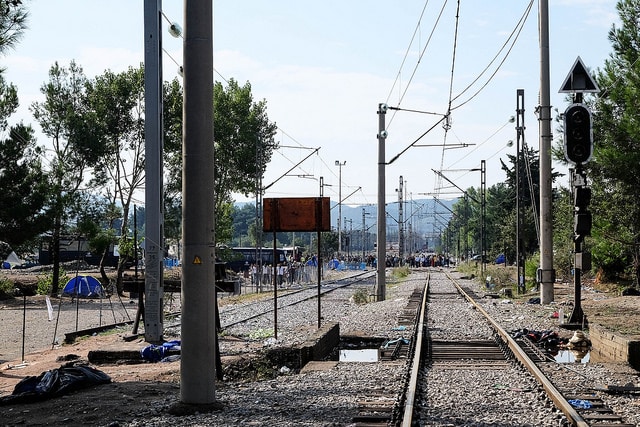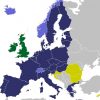
The EU is accumulating crises without managing to resolve them: weak economic growth; the Greek crisis that continues unsolved and now storm clouds gathering over the German banking industry; the prospect of Brexit; not to mention, of course, the refugee crisis. Too many for a Europe lacking leadership.
And it is not for a lack of leaders: David Cameron governs the UK with an absolute majority, although he is in the hands of his own party’s eurosceptics; Viktor Orbán rules in Hungary; and Jarosław Kaczyński is in Poland (managing the government by remote control). The problem with these and other leaders is that they have an alternative conception of Europe –a rather anti-European one, although not to the extent of wanting to leave– and they can thus not prove it with leadership. Meanwhile, the electorates have fragmented in many EU countries, sometimes accompanied by a growth of anti-European populism. The Nordics, the Netherlands and Belgium, among others, are already accustomed to such atomisation. But not Spain, Portugal, Ireland or, for that matter, Slovakia. And, in France, François Hollande is the prisoner of his own domestic problems; plus, keep an eye on Le Pen.
And what of Angela Merkel, it may be asked? The German Chancellor has hit a rough patch precisely because of her management of the refugee crisis. There are essentially two issues. In the first place, the legality and morality of opening the borders to those fleeing en masse from Syria and other countries of the region, a decision not endorsed by many of her partners and fellow Germans (or her Bavarian partner, the CSU). And she paid the price in last Sunday’s three regional elections, in which the anti-European Alliance for Germany (AfD) has surged. Secondly, at the last European Council meeting, Merkel set to work bilaterally negotiating with her Turkish counterpart, Ahmet Davutoğlu, an agreement on refugees that she foisted (they will have to return to the agreement next Thursday and Friday) on the other 27 and even the European Commission.
Leading is not the same as commanding. European leadership has always been collective. The best era (admittedly when the EU was smaller) was when Kohl, Mitterrand, Thatcher and González coincided at the European Council, with a strong and creative personality at the head of the Commission in the form of Jacques Delors. For this very reason a strong Commission President has never been wanted since, nor a President of the European Council now –Donald Tusk does not meet the description– although it is true that Jean-Claude Juncker has put forward some interesting initiatives, such as Europeanising the EU’s external borders with a shared police force. Nor, since Solana’s departure, has a High Representative for Foreign Policy and Security with his or her own gravitas been sought, although Federica Mogherini is acquitting herself rather well. And Mario Draghi, President of the ECB, is no leader, but rather a good technocrat.
Leading also involves having vision. And at the moment there is no vision of where Europe should be heading. This crisis of leadership coincides with a political crisis that has been building up for some time: a crisis of European politics –with a glaring lack of democracy, replaced by technocracy– and of national politics in societies in flux, a politics without answers to contemporary problems. And what De Gaulle called Europe’s ‘external federator’, the US, is to some extent disengaging and is immersed in a fraught electoral process.
Europe is renouncing its founding principles. Authoritarianism is on the rise in the EU’s eastern members. Recep Tayyip Erdoğan’s regime in Turkey is strengthening its grip on the news media; EU leaders, however, choose to turn a blind eye and offer Ankara the speeding up of accession negotiations –which have been delayed too long– and easing the immigration of Turks in exchange for the Turks retaining more of the refugees (and the money to manage them) who enter through Greece, even though they will find other routes. Filippo Grandi, the new United Nations High Commissioner for Refugees (UNHCR), has voiced his grave concern in the European Parliament that the provisional deal with Turkey may contravene current international law designed to protect refugees. It is on the basis of law, and not force, or orders, or commands, that this Union of Europe has been built. If the EU starts violating rules externally it will end up breaking them internally. And the Union’s lack of solidarity towards the outside world is a reflection of its own internal lack of solidarity.


